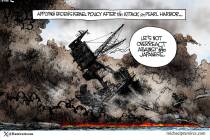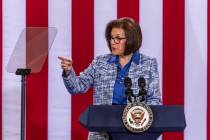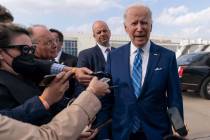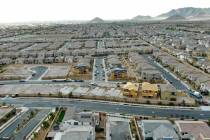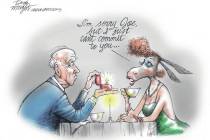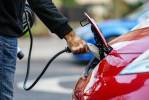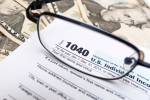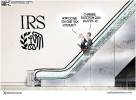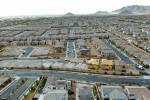Road work
The Nevada Department of Transportation hosted a meeting in Reno on Tuesday to announce a new study on alternatives to fuel taxes to pay for road maintenance. With new cars and hybrid vehicles using less gasoline, fuel taxes haven't kept pace with needs, explained NDOT Director Susan Martinovich.
By 2016, officials estimate Nevada could face a $6 billion shortfall in road maintenance needs. And Nevada isn't alone. According to a 2008 estimate, the country is $140 billion short in highway funding, with the problem growing as gasoline taxes increasingly fail to cover the costs of needed projects.
One idea being considered by Nevada, the federal government and 15 other states is charging motorists for "vehicle miles traveled," replacing gasoline taxes with a fee assessed on the actual amount of driving a person does.
Nobody seriously believes you can count on drivers to voluntarily report mileage driven. So most studies so far support wireless communication devices or global positioning system receivers installed in cars, which could record mileage driven, time of day traveled and the type of route, NDOT officials say. Car manufacturers could be required to install GPS devices to determine mileage and fees.
Such a system also would allow authorities to track your exact whereabouts at any time, should you be wanted for questioning on suspicion you've been paying cash for medical services, using incandescent light bulbs or Freon refrigerant or full-sized toilet tanks, failing to pay your new federal "Value Added Tax" on proceeds from Internet or yard sales, or any number of new "crimes" that would have had Granddad scratching his head in wonder.
Scott Rawlins, NDOT deputy director, says privacy is a central issue in the debate.
"Some say we don't want Big Brother following us around," Mr. Rawlins said. "How do we protect the privacy of those vehicle owners and not have that sense out there?"
NDOT officials muse they could also take odometer readings during annual vehicle registration, or plant "cards" that automatically store mileage data, with the information recorded at card-reading stations where billing is determined.
Some 35 years ago, Americans first became generally aware that there could be a "gasoline crisis" -- that our dependence on imported oil could combine with taxation, price controls and other "well-meaning" government interventions to create either fuel shortages, price hikes or both.
Suddenly, those little imported cars that got superior gas mileage no longer looked like toys meant only for hippies and college professors.
But imagine that someone, 35 years ago, had said, "Watch out! If you let them legislate that cars have to get better gas mileage, they'll eventually use the fact that we're driving more miles on less fuel as an excuse to install tracking devices, so they can tell where we are every minute of the day."
That person would have been dismissed as a paranoid fruitcake, wouldn't he?
Not anymore.











